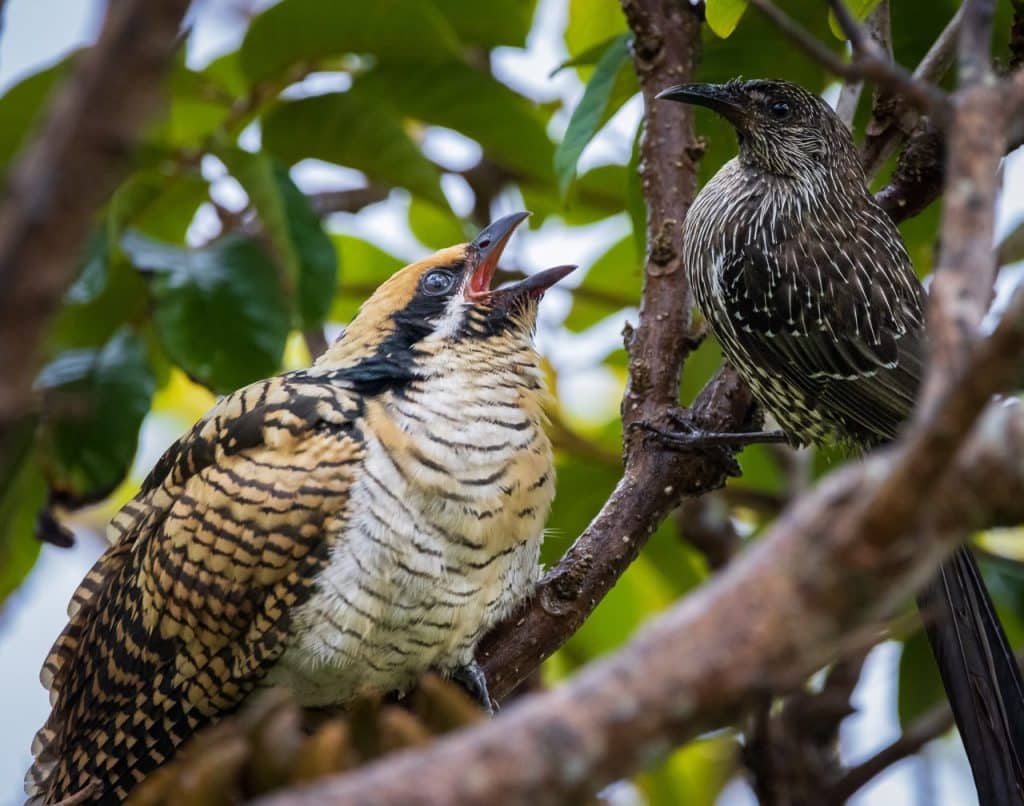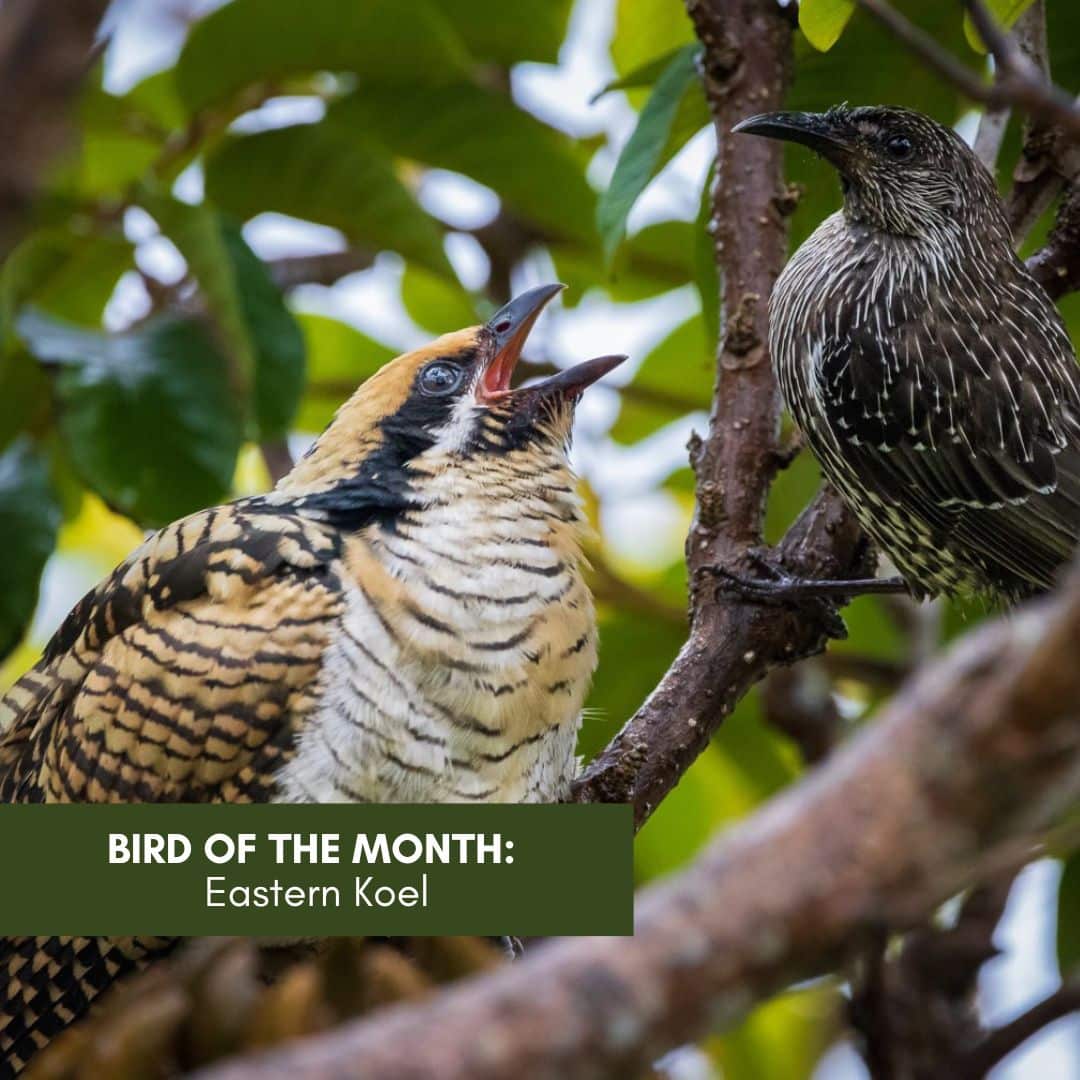The Eastern Koel- previously called the Common Koel is not so common in its rearing behaviour. It’s called brood parasitism and I personally find it fascinating. This photo was taken recently of a fledgling koel squawking for food from the little wattlebird surrogate mother.

Image credit: Brent Mail (SIC media)
How can a mother trust a total stranger to bring up her young? It is an evolutionary process that has advantages for some species. It turns out that about 100 bird species, (as well as some fish and insects) use this approach. The 100 or so obligate brood parasites come from five distantly-related bird families. One of which we are most familiar is the cuckoo family but just to confuse matters, only abut ⅓ of cuckoos are brood parasites. (scienceofbirds.com blog November 5, 2020).
Every organism’s goal evolutionarily is to leave behind as many copies of its genes in as many offspring as possible. A great way to do that is to drop your eggs into the care of a bunch of other families and take your chances that a good number of them will survive, perhaps more than raising a smaller family yourself. What about the host? She must be exhausted- why would she feel obliged to raise this enormous chick? Perhaps the host wattlebird has not evolved to positively identify the parasite eggs or maybe it recognises the imposter but is reluctant to push it out of the nest for fear of destroying their own eggs by accident in the process. Whatever the evolutionary mechanism, both species seem to be reproducing adequately in spite of the unconventional approach.

